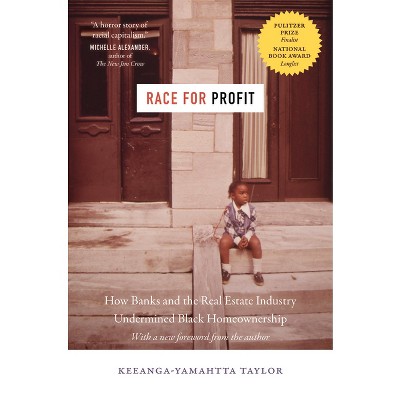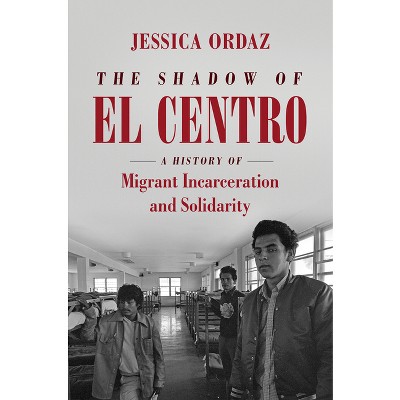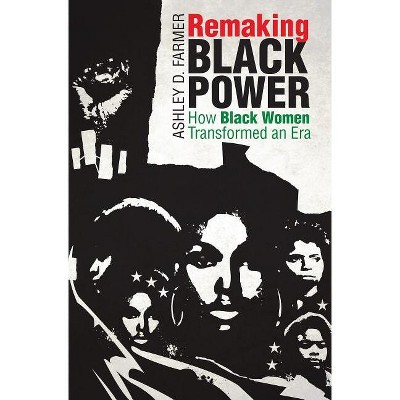Sponsored

The Criminalization of Black Children - (Justice, Power, and Politics) by Tera Eva Agyepong (Paperback)
In Stock
Sponsored
About this item
Highlights
- In the late nineteenth century, progressive reformers recoiled at the prospect of the justice system punishing children as adults.
- Author(s): Tera Eva Agyepong
- 196 Pages
- History, African American
- Series Name: Justice, Power, and Politics
Description
About the Book
"In this book, Tera Agyepong explores the vital role children played in the construction of ideas of criminality in early twentieth century Chicago. For African American children, youthfulness--far from being a marker of purity or innocence--was a factor in subjecting them to particular institutional, social, and economic vulnerabilities at the hands of the juvenile justice system. At a moment when blackness was becoming a marker of criminality, their race overrode the potential protections their status as children could have provided them"--Book Synopsis
In the late nineteenth century, progressive reformers recoiled at the prospect of the justice system punishing children as adults. Advocating that children's inherent innocence warranted fundamentally different treatment, reformers founded the nation's first juvenile court in Chicago in 1899. Yet amid an influx of new African American arrivals to the city during the Great Migration, notions of inherent childhood innocence and juvenile justice were circumscribed by race. In documenting how blackness became a marker of criminality that overrode the potential protections the status of "child" could have bestowed, Tera Eva Agyepong shows the entanglements between race and the state's transition to a more punitive form of juvenile justice.
In this important study, Agyepong expands the narrative of racialized criminalization in America, revealing that these patterns became embedded in a justice system originally intended to protect children. In doing so, she also complicates our understanding of the nature of migration and what it meant to be black and living in Chicago in the early twentieth century.
Review Quotes
"Agyepong makes a compelling case for the centrality of black youth to understandings of delinquency, dependency, and, by extension, criminality at the foundations of the juvenile justice system." -- Davarian L. Baldwin, author of Chicago's New Negroes: Modernity, the Great Migration, and Black Urban Life
"As a solid basis for social work advocacy . . . [The Criminalization of Black Children] offers a well-organized collection of historical accounts of how the juvenile justice system of Chicago created a racialized set of structures and procedures for the engagement and treatment of Black children during the domestic migration of Black families."--Affilia: Journal of Women and Social Work
"Brings significant insights to the fields of juvenile justice, childhood studies, and African American history."--American Historical Review
"Provides a case study on race in Chicago's juvenile justice system throughout the first half of the twentieth century. . . . Highlights the particular vulnerabilities that young African Americans face in a legal system supposedly designed to protect children's innocence."--Journal of African American History





